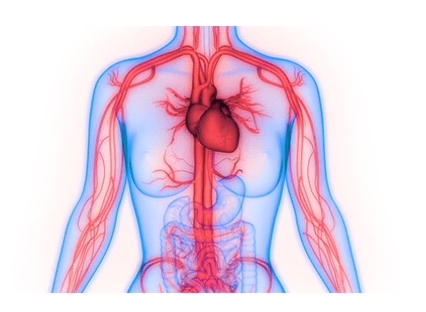
Heart Disease and Coronavirus, what to know.

Finally, the muddied coronavirus waters are getting a little less murky — and revealing that the heart plays a major role in how COVID-19 (the disease caused by the new coronavirus) affects people. “When patients present with symptoms that appear to be unrelated to COVID, such as a stroke or heart attack, we now know that COVID should still be considered,” explains PACE Physician Oghenerukevwe Odiete, MD. “It's critical that we consider both sides of an issue. Don't overlook a non-COVID diagnosis but keep COVID in mind while examining something that doesn't appear to be COVID.”
Dr. Odiete elaborates on what we know about COCID-19 and the effects of the virus on the heart.
The studies from Wuhan, China, were the first. According to one study published in March, 27.8% of COVID-19 patients admitted to hospitals experienced cardiac damage. Some had a history of cardiac issues, whereas others did not. COVID-19 impacts the heart in a variety of ways, according to new studies from Europe and the United States:
Doctors will frequently examine your cardiac enzymes if you go to the hospital with heart problems or a suspected COVID-19 infection. The enzymes and proteins that rise when your heart is injured, such as troponin and creatine kinase, are measured in these tests (CK).
Troponin and creatine kinase leak out of the heart and into the bloodstream when cardiac muscle cells are damaged. The presence of high amounts of these enzymes in blood tests indicates that the heart is in danger. According to Dr. Odiete, the presence of these enzymes indicates the existence of a heart attack. “They also reveal whether a COVID patient is suffering problems from the infection's direct cardiac injury.”
Coronavirus can also cause myocarditis, a severe inflammation of the heart that stops the heart from completing its function properly. “We don't know why or how, but COVID-19 infection can harm the heart directly, causing arrhythmias and cardiac failure,” says the researcher. As a result, it's critical to comprehend this risk factor and apply it to keep track on hospitalized patients.”
Doctors use brain natriuretic peptide (BNP) levels to identify if a patient is suffering from heart failure. Dr. Odiete says that as the heart muscle expands, this protein is released into the circulation. “If BNP levels are high in COVID-19 patients, it implies they have heart damage or heart failure, which means they are at risk for poor outcomes.”
It's becoming evident that the coronavirus can lead to a significant rise in blood clots all over the body. Blood clots develop when your blood bunches together in gel-like clusters. According to certain European research, up to 20% to 30% of the sickest COVID-19 individuals are impacted.
A high number of blood clots might lead to serious consequences. “We need to evaluate if COVID is at play in patients who come in with a stroke or what seems to be a heart attack,” Dr. Odiete says. “We know that people's clotting systems may be disrupted in various infectious diseases, such as sepsis or bacterial or viral infections. The coronavirus is thought to have a direct influence on the clotting system as well. That might explain why we're finding clots in small blood arteries and micro clots in the lungs and heart, in addition to stroke.”
We are just a call or click away. To learn more, book an appointment online or over the phone with PeachState Advanced Cardiac & Endovascular. We have several locations in Georgia: Newnan, Atlanta, & Griffin.
You Might Also Enjoy...


Feeling Faint

Should I be worried about my numb feet?

Can leg cramps be a sign of something serious?

Meet Dr. Odiete - PACE Cardiovascular Specilaist


